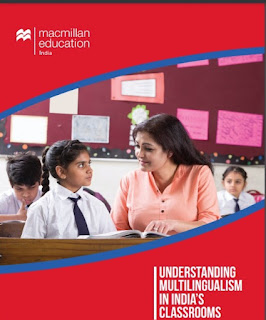A Report: Webinar on Multilingual Pedagogies
It is not often that a webinar about MLE attracts a large group of participants, but if you have a relevant topic and good speakers it can be done! The recent webinar on multilingual pedagogies dealt with a reality that we often face in Indian classrooms that multiple languages are spoken by the learners. The webinar speakers had a good mix of theory and practice. No wonder it attracted a broad audience! A Webinar: ‘Multilingual pedagogies for all: Language-inclusive teaching and learning’ was hosted by The Asia-Pacific Multilingual Education Working Group, UNESCO Bangkok and UNICEF East Asia and Pacific on the 9th of July 2024. The presentations were aimed at discussing practical solutions for preparing teachers to lead multilingual classrooms through best practice models in various countries such as India, the Philippines, Thailand and Australia. The speakers were Kathleen Heugh from the University of South Australia, Sangsok Son from SIL Intl, Dhir Jhingran of the Language...




